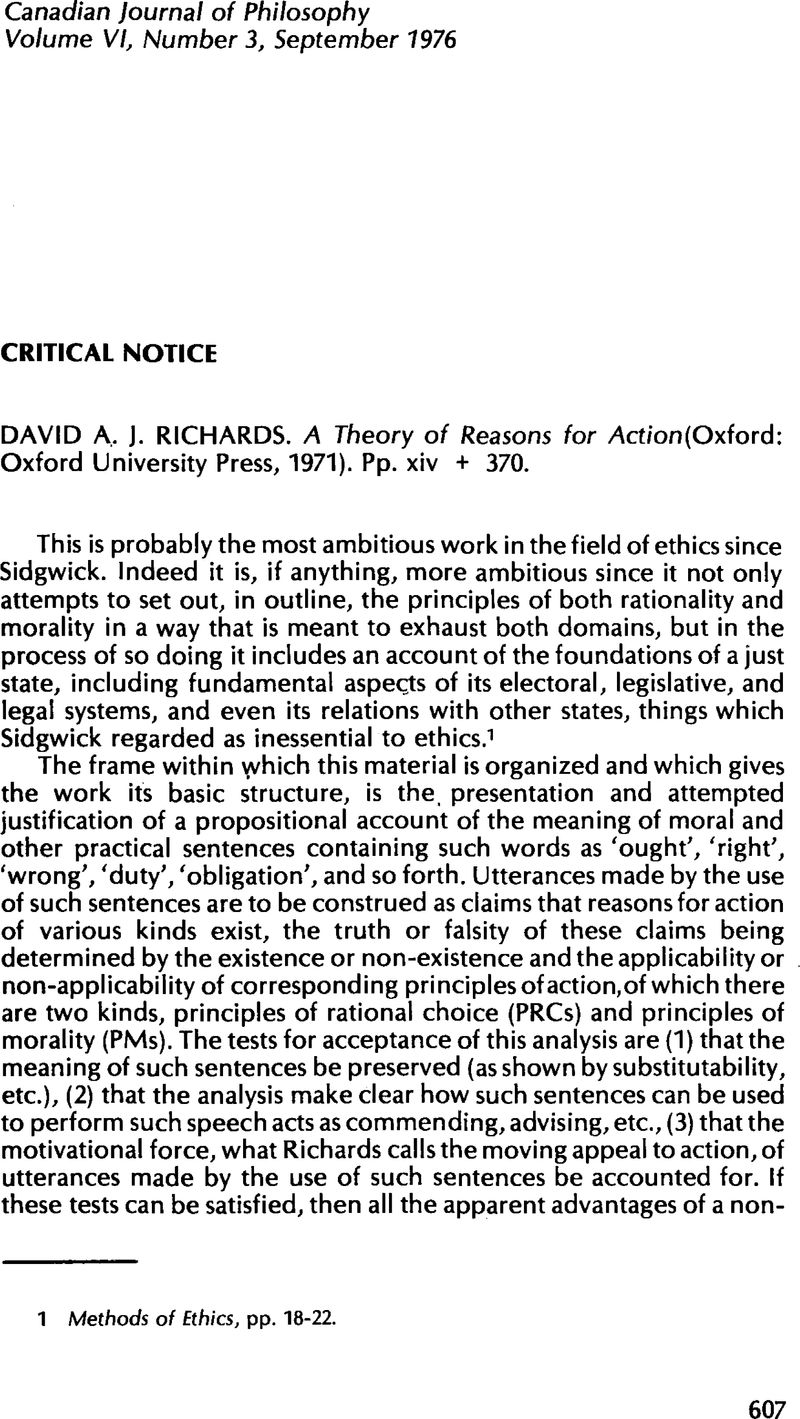No CrossRef data available.
Article contents
David A. J. Richards. A Theory of Reasons for Action (Oxford: Oxford University Press, 1971). Pp. xiv + 370.
Review products
Published online by Cambridge University Press: 01 January 2020
Abstract

- Type
- Critical Notice
- Information
- Copyright
- Copyright © The Authors 1976
References
1 Methods of Ethics, pp. 18–22.
2 Since there is no natural linguistic expression of the principles qua principles (as distinct from general ‘ought’ judgments), the expression ‘are to’ is adapted from the natural expression of social rules and given a special technical sense adapted to this purpose.
3 As formulated, these are maximizing principles, but Richards later (p. 46f.) says, on the somewhat paradoxical grounds that the costs of calculation may be too great, that they are to be taken as ‘satisficing’ principles. Thus the Effective Means Principle, which originally read (p. 28), “Given a desired end, one is to choose that action which most effectively, and, at least cost, attains that end, ceteris paribus,” is to be revised to read, “Given a desired end, one is to choose an action which is satisfactorily effective in attaining that end, ceteris paribus,” and the other principles are to be understood as similarly modified. But if the costs of calculation are taken into account do we not still have maximizing principles? (The problem seems to be one about orders and self-reference.)
4 The essential similarity of this account of the principles of justice, efficiency, and fairness, to that of Rawls will be apparent to every reader.
5 Although the PMs are divided into two kinds, institutional principles and individual principles, the basis for this distinction is not that institutional principles apply to institutions while individual principles apply to individuals, but that institutional principles apply to institutions and individuals within an institutional context, and that individual principles apply to individuals simply as persons, independently of their relations under common institutions. That Richards intends his principles of justice (as well as the principle of fairness) to be principles of duty or obligation applying to individuals, is made clear by the passage on p. 127 quoted immediately below.




